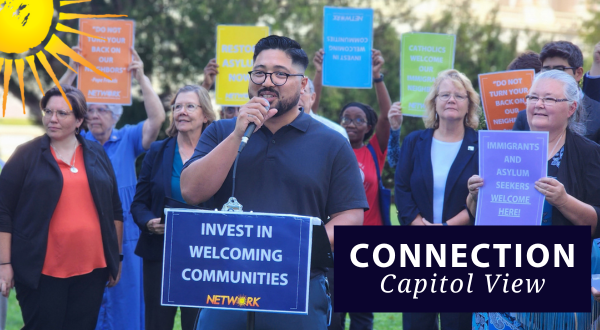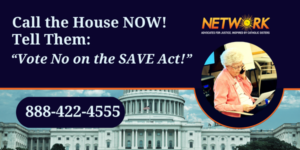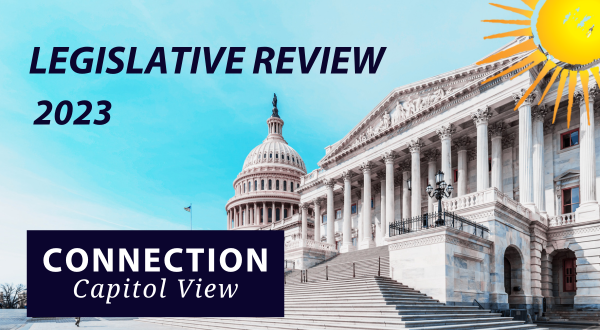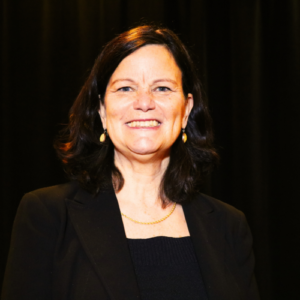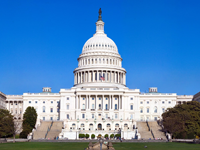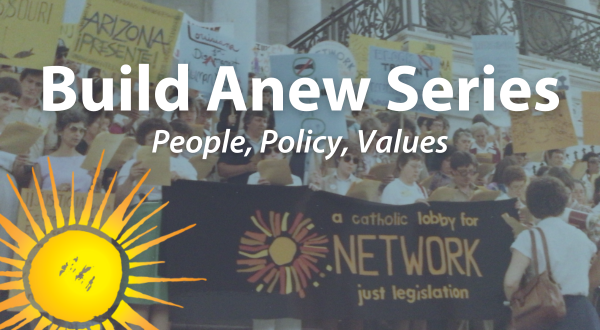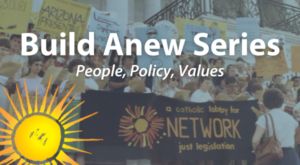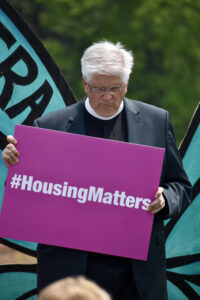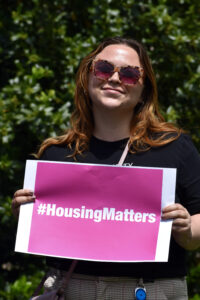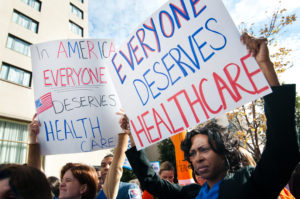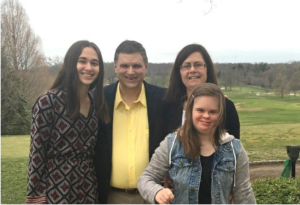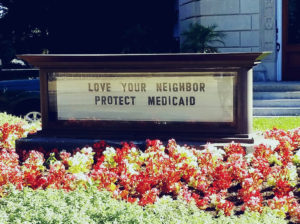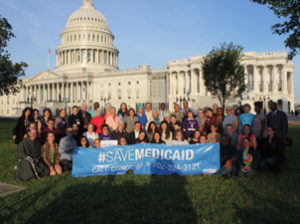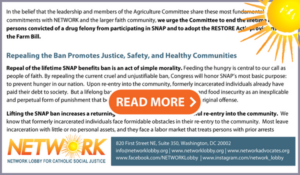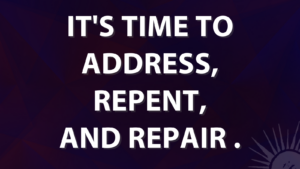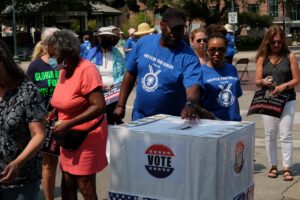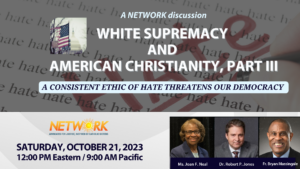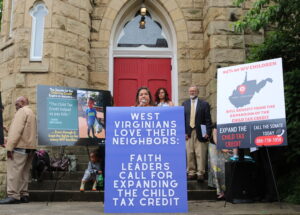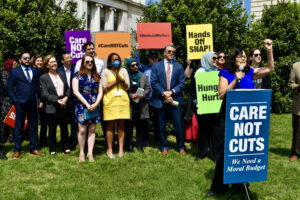
Move Past the Unserious
People Who Want Action on Immigration Should Look to These Proposals
Ronnate Asirwatham
April 2, 2024
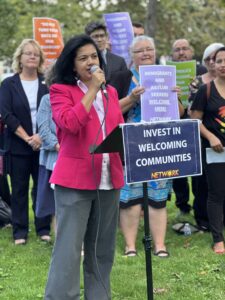
NETWORK Government Relations Director Ronnate Asirwatham at the September 2023 Welcoming Communities press conference on Capitol Hill
Words have consequences. And almost nowhere is that truer than when dealing with immigration.
People like to think they are true to their word when they say they want action on immigration and care about finding practical solutions. After all, immigration is a serious issue that touches millions of lives and practically every community. We should adopt serious proposals. But what does it mean to be serious?
Many people, especially elected officials, betray their unseriousness by how they talk about immigration. Unfounded claims of a “migrant crime” wave are dangerous and inaccurate. These claims feed into racist tropes by fueling fear and hatred towards immigrants and people of color, making our communities less safe.
Fearmongering gives cover to politicians wishing to pass or enact terrible policies. The recent legal attack by the Attorney General of Texas on Annunciation House—a series of shelters that serve migrant people across the Southwest—is one small example of right-wing extremists attacking people seeking safety, as well as the people of faith who serve them.
We have also seen this type of attack in extreme bills against immigrants and people who welcome them in the state legislatures of Arizona, Idaho, and Georgia and the U.S. Congress. Instead of putting forward workable solutions, Congressional extremists keep pushing for unworkable, failed proposals that the American public has rejected. They think this is a good way to pass unpopular policies, but providing a veneer of legality for attacking immigrants makes everyone less safe.
This xenophobic rhetoric is like that which brought gunmen to the Pittsburgh synagogue and the El Paso Walmart. Unserious people can still create serious threats, and the policies of deterrence and the rhetoric of racism these politicians are proposing will make all who live in the borderlands and people of racial and religious minorities everywhere unsafe.
We must focus on what constitutes a serious immigration policy proposal; luckily, we have plenty of examples. At the end of January, the Congressional Hispanic Caucus released its immigration principles for the second session of the 118th Congress. These principles, comprised of 18 policy proposals within a framework of four pillars—immigration reform, jobs and the economy, border safety, and regional migration concerns—are what serious immigration policy looks like and what people of faith and goodwill should push Congress and the Administration to adopt.
- Increase funding for asylum processing and legal representation programs for adults and guarantee access to counsel for asylum seekers in federal custody.
- Create family reunification programs for additional countries to assist with backlogs.
- Facilitate access to work authorization for newly arrived immigrants.
- Fund community-based case management programs that decrease immigration detention.
- Protect Dreamers and DACA recipients.
- Provide a pathway to citizenship for undocumented individuals.
- Update the registry cutoff date through H.R. 1511, the Renewing Immigration Provisions of the Immigration Act of 1929.
- Advance immigration protections through H.R. 3194, the U.S. Citizenship Act.
- Establish a humanitarian visa for pre-screen asylum seekers.
- Expand protections for minors seeking to be reunited with parents holding legal status in the U.S.
- Protect undocumented spouses or parents of military members by providing a path of legal residency and eliminating the threat of deportation.
- Advance protections for agricultural workers through the Farm Workforce Modernization Act of 2023.
These are serious proposals that can create real change by actually addressing the problems created by our broken immigration system. Any person, elected or otherwise, who claims to be serious about the border and immigration but isn’t embracing these proposals is not serious. In fact, they are very likely trying to use the plight of suffering people to get you to buy into a “solution” that will only cause more suffering and put more people in danger. And that’s serious.







